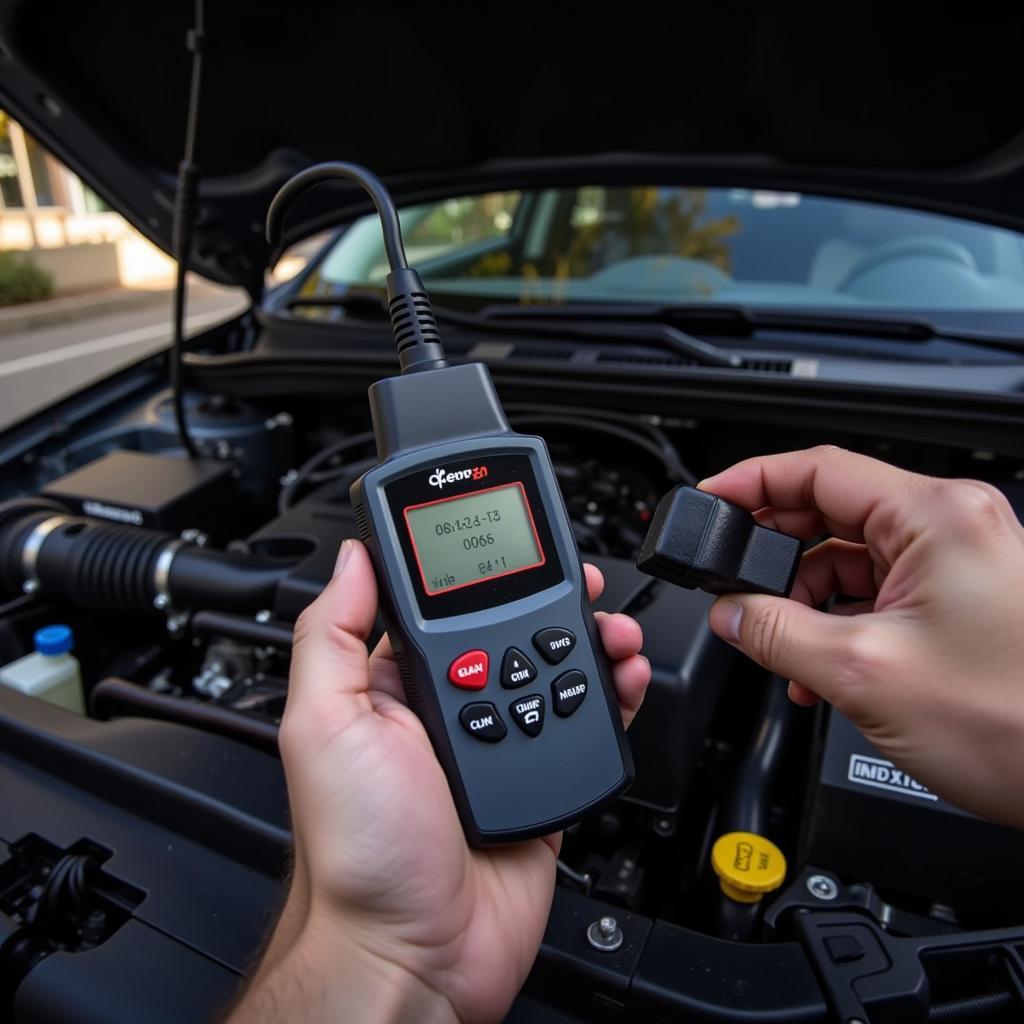A car diagnostic test, using a handheld device or a more advanced system at a mechanic shop, scans your car’s computer system for trouble codes. These codes offer clues about potential problems affecting your engine, transmission, emissions, and more. But does a car diagnostic test guarantee you’ll find the root of the issue every time?
 Car diagnostic test using a scan tool
Car diagnostic test using a scan tool
While incredibly useful and often the first step in diagnosing car troubles, these tests aren’t foolproof. Let’s dive into why a car diagnostic test might not always pinpoint the exact problem and what other steps you might need to take.
Understanding Car Diagnostic Tests: More Than Just Codes
Think of a diagnostic test as a doctor taking your temperature. A fever indicates your body is fighting something, but it doesn’t reveal the cause – is it a cold, flu, or something else? Similarly, diagnostic codes point to potential areas of concern in your vehicle but don’t always reveal the complete picture.
For example, a code related to your oxygen sensor might indicate a faulty sensor, but it could also be caused by a vacuum leak, a failing catalytic converter, or even a wiring issue. This is where the expertise of a qualified mechanic comes in.
Why a Car Diagnostic Test Might Not Guarantee Issue Identification
Here are a few reasons why a diagnostic test might not be the silver bullet:
- Intermittent Problems: Some car problems are ghosts—they appear occasionally but vanish before or during a test.
- Multiple Issues: One problem can trigger a cascade of codes, making it tricky to isolate the root cause.
- Sensor Malfunctions: A faulty sensor can send incorrect information, leading to a misdiagnosis.
- Human Error: Improperly connecting the diagnostic tool or misinterpreting the codes can lead to inaccurate conclusions.
- Mechanical Issues: Not all car problems stem from electronics. Wear and tear, physical damage, or fluid leaks might not trigger any codes at all.
Beyond the Codes: Steps for Accurate Diagnosis
If a diagnostic test doesn’t instantly crack the code, don’t despair! Here’s what you can do:
- Provide a Detailed History: Tell your mechanic about any unusual noises, smells, or performance issues, no matter how small. This helps them connect the dots.
- Visual Inspection: A mechanic will visually inspect your vehicle for obvious signs of damage, leaks, or wear.
- Further Testing: Depending on the suspected issue, additional tests may be needed, like checking fuel pressure, compression, or electrical systems.
FAQs About Car Diagnostic Tests
- How much does a car diagnostic test cost? Prices vary but expect to pay between $50 to $150. Some shops might offer a free initial scan.
- Can I do a car diagnostic test myself? Yes, affordable OBD-II scanners are available for home use, but they may not be as comprehensive as professional-grade tools.
- Should I get a car diagnostic test before buying a used car? Absolutely! It’s a worthwhile investment to uncover potential problems before you buy.
 Mechanic inspecting a car engine after a diagnostic test
Mechanic inspecting a car engine after a diagnostic test
Getting the Most from Your Car Diagnostic Test
While a car diagnostic test is a valuable tool, it’s most effective when combined with the expertise of a qualified mechanic.
Need help diagnosing your car troubles? Contact us via WhatsApp: +1(641)206-8880, or Email: [email protected]. Our team of experts is available 24/7 to assist you.

Leave a Reply